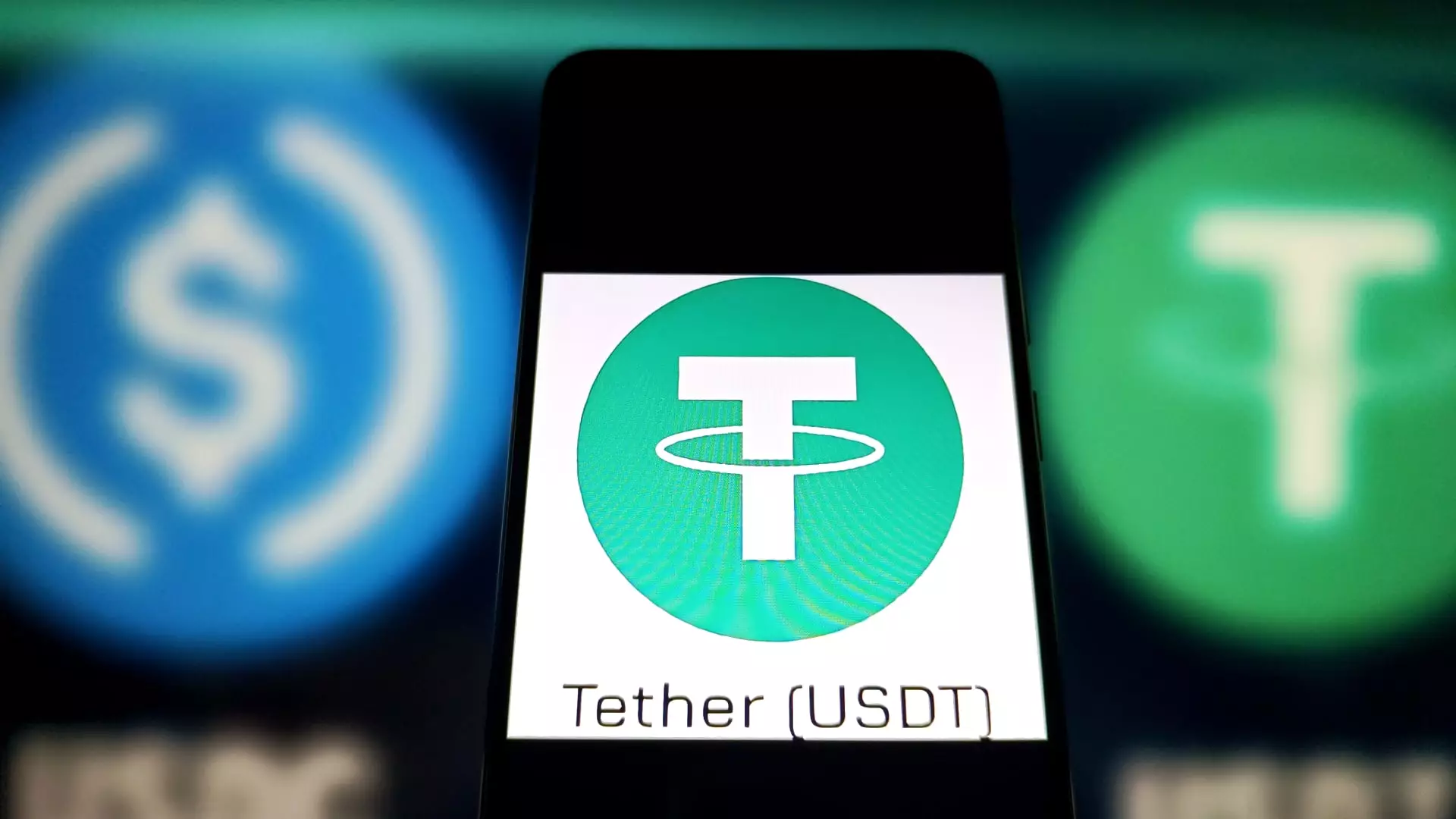On a pivotal Wednesday, Hong Kong took a monumental step in the realm of financial technology by passing a bill specifically targeting stablecoins. While cryptocurrency has often been associated with volatility, stablecoins—whose value is tethered to stable assets like fiat currencies or commodities—represent a more reliable form of digital currency. This legislative decision highlights Hong Kong’s strategic intent to assert itself as a leading jurisdiction for cryptocurrency regulation amidst an evolving global landscape.
The law mandates stablecoin issuers to secure a license from the Hong Kong Monetary Authority (HKMA), thereby establishing an essential framework that governs the management of asset reserves and the segregation of client assets. This initiative is indicative of a broader attempt to enhance the regulatory landscape for virtual assets, which the HKMA believes will not only foster financial stability but also promote innovation within the financial sector. The push towards a more comprehensive regulatory framework represents a clarion call for other nations to recognize and emulate Hong Kong’s proactive approach to digital finance.
Impact of Regulatory Oversight on Financial Integrity
A noteworthy feature of this new law is its commitment to ensuring institutional-grade reliability for traders and investors. “Hong Kong’s new stablecoin policy sets a global benchmark,” asserts YeFeng Gong of HashKey OTC. By mandating full reserve backing and stringent redemption guarantees, the HKMA aims to instill confidence in the stability and reliability of stablecoins. Such measures are crucial as they minimize risks associated with fluctuations in asset values, providing a safeguard for both institutional and retail investors.
Moreover, the HKMA’s involvement signifies the government’s determination to exercise oversight in an industry that has often been criticized for its lack of regulatory clarity. By creating an environment where compliance is paramount, Hong Kong positions itself as a beacon of trust in the digital finance arena. The treasure trove of compliance requirements ensures that stablecoins can indeed serve their intended purpose of facilitating reliable transactions, setting a standard that could influence regulatory practices globally.
A Global Context: The Rise of Stablecoin Regulations
Interestingly, Hong Kong’s bold initiative comes shortly after the U.S. Senate advanced the GENIUS Act, which aims to establish a regulatory framework for stablecoin issuers. The convergence of policy efforts in various jurisdictions, including the European Union, Singapore, the United Arab Emirates, and Japan, signals a growing consensus on the need for a structured approach towards stablecoin governance. As highlighted by Chengyi Ong, head of Asia-Pacific policy at Chainalysis, the introduction of these regulations is expected to bolster the legitimacy of crypto assets and enhance adoption.
Stablecoins have swiftly emerged as the backbone of the cryptocurrency ecosystem. Their potential to streamline processes such as cross-border payments and settlements showcases their transformative power in addressing efficiency issues inherent in traditional financial systems. The global race to create a conducive regulatory environment for stablecoins underscores their significance in the future of finance.
The Future of Financial Innovation in Hong Kong
As the new regulatory framework unfolds in Hong Kong, the government has expressed a commitment to allow sufficient time for stakeholders to adapt to these requirements. This balanced approach demonstrates an understanding of the need for both regulatory compliance and the encouragement of financial innovation. By carefully calibrating this balance, Hong Kong is not only prioritizing financial stability but also cultivating an atmosphere ripe for innovation in digital finance.
The potential advantages of having a robust stablecoin policy are too significant to overlook. By setting a global precedent, Hong Kong encourages other financial hubs to engage earnestly with the complexities associated with cryptocurrency regulation. The proactive measures taken by the HKMA may likely spur competition among global jurisdictions, compelling them to innovate in their own regulatory frameworks.
Hong Kong’s legislative action lays the groundwork for a sustainable crypto ecosystem. It reflects an understanding that well-regulated stablecoins could play an essential role in shaping the future of both digital finance and traditional banking systems. Embracing this evolution could lead to a more inclusive financial landscape, paving the way for reliable, efficient, and accessible financial services for all.

